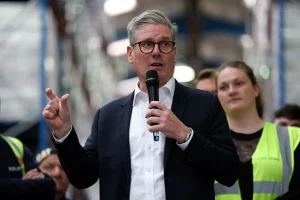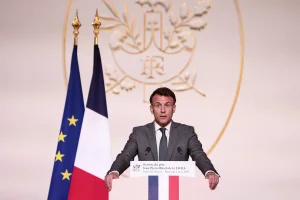The cap on energy bills could top a breathtaking £5,000 next year, according to the bleakest forecast yet for struggling households – as ministers prepared to ‘bang heads together’ at an emergency Downing Street meeting of fat cat utilities bosses.
Experts at energy consultancy Auxilione said that at yesterday energy prices they expect that regulator Ofgem could be forced to set the cap at £5,038 per year for the average household in the three months beginning next April.
In news that heaps extra pressure on households across Britain, it also predicted that bills would reach £4,467 in January – £200 higher than an already grim forecast from fellow consultant Cornwall Insight.
This forecast is likely to worry energy users more than April’s higher number, as households use more gas during the winter months.
As it stands, the nightmare scenario would mean that an average household will spend £571 on energy in the month of January.
The price cap on energy bills is calculated based on average household use. If you use less energy, then your bills will be lower. The latest prediction is that the cost of gas will be capped at 18.02p per kilowatt hour and 70.34p per kWh of electricity.
The new prediction is based on today’s energy price on wholesale markets. The final price is calculated by tracking the wholesale price over several months. It comes just hours before ministers are meant to sit down with energy companies to discuss the bleak winter ahead.
Chancellor Nadhim Zahawi and Business Secretary Kwasi Kwarteng are this morning expected to probe bosses from Britain’s biggest energy firms, including Shell and BP, for a solution to the soaring bills.
Energy executives are being asked to submit a breakdown of their expected profits and investment plans for the next three years. Ministers are demanding they invest more of their ‘extraordinary profits’ in green technologies – with the threat of a new windfall tax if they fail to do so.
There has been anger at Shell, BP and British Gas owner Centrica announcing bumper financial results as households struggle.
Rishi Sunak and Liz Truss continue to face questions about what they will do to help struggling families, while Labour has called for a ‘loophole’ in the oil and gas windfall tax to be closed to raise more support cash.
Former prime minister Gordon Brown has suggested scrapping the price cap and negotiating lower rates with energy bosses.
Martin Lewis yesterday claimed rising energy prices were a ‘cataclysmic’ financial emergency ‘that risks lives’.
Ahead today’s meeting, the Chancellor told reporters: ‘I think it’s important we all get round the table, I will continue to do the work I need to do as Chancellor, but I also want to challenge them, to say are you making the investment?
‘How can you help your customers? What more can we do together? That’s the reason for the meeting.’
Speaking in Belfast yesterday, he added: ‘What I want to do tomorrow is understand better how they’re committed to that investment in gas, because whatever happens we need energy security and we’ve got a strong strategy that Kwasi and I will continue to push hard.
‘The other area I want to look at is some of the energy producers, if you look at the renewable energy producers, the amount that they get paid is linked to gas prices.
‘So, they haven’t changed anything they’re doing, they haven’t had any increase in their input costs at all, but they’re getting a much higher return because of the unusually high gas price because of Putin.’
Mr Zahawi also said the Treasury has been preparing ‘options’ for the next prime minister on what further support could be given to people this winter.
Education secretary James Cleverly added: ‘The Chancellor of the Exchequer and the Business Secretary are actually calling in the leaders of those big energy companies to knock some heads together and basically hold them to account about what they’re going to do with those profits.’
Tory leadership candidate Mr Sunak has pledged ‘hundreds of pounds more’ energy bills support.
He told the BBC that it would be his ‘moral responsibility’ to offer more help with bills if he were selected as prime minister, in particular to pensioners and those on benefits.
Source: Dailymail.





